Easter
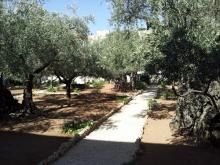
In the Garden of Gethsemane, Jesus utters his agonizing prayer, “Abba, Father, for you all things are possible; remove this cup from me; yet, not what I want, but what you want.”
Who among us hasn’t found ourselves in a situation where the inevitable seems impossible? Where the unavoidable seems unimaginable?
Who hasn’t said to God, in so many words, “Remove this cup”?
The most difficult thing in such a situation may be its crushing inevitability. You want to escape from your life, which suddenly feels like an oncoming train about to run you down. It is the shock you feel when you receive a frightening diagnosis from your physician. When you are laid off from a job. When a friend dies. When a relationship ends. You say to yourself, “This cannot be happening.”

Easter Sunday marks the holiest, most exalted moment of the Christian year. In Easter services all over the world, trumpets and organs blast. Flowers transform churches with their brightness. Worship leaders boldly proclaim: “Christ is risen!” Congregations echo back: “Christ is risen indeed!” The cycle of celebration and repetition begins as it should — a festive proclamation of good news. In Christ God has overcome the powers of sin and death, freeing us to live with hope and promising us life. Not just life after death, but full life, divinely inspired life — life in the here and now.
Christ is risen! Christ is risen indeed!
Even in these festive moments, many people express insecurity regarding the quality of their own believing.
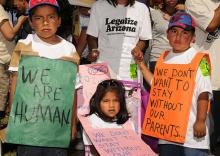
“That I may know him, and the power of his resurrection, and the fellowship of his sufferings, being made conformable unto his death; If by any means I might attain the resurrection of the dead.” Philippians 3:10-11
Harsh winters make us more deeply appreciative of spring. Last week, after a particularly intense winter, it finally reached 60 degrees in New York. I, for one, celebrated heartily. Spring is a reminder that winter is not interminable and flowers will bloom again. Almost exactly one year ago, the Senate released a bipartisan bill on immigration reform. Many Christian leaders celebrated the possibility that finally the nearly 11 million men, women, and children would be afforded the opportunity to integrate into this great country. In addition, in January the GOP released a set of principles that set the tone for the genuine possibility for immigration reform. There was a growing consensus that this is the year for immigration reform. Then the news started to change and many prognosticators said, “Immigration reform is dead.”
It is into this public eulogy of immigration reform that the Christian message of Lent and Easter can breathe new life.
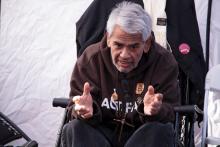
As an immigrant who made the long journey from Zacatecas, Mexico, to the farmlands of California many times as a child, the Lenten story of Jesus’s wandering for 40 days in the desert has always resonated with me very deeply. And the Easter celebration that follows sustains my hope and resolve that the faith community’s long movement to reform our broken immigration system will succeed.
Late last year, I, along with several other immigration advocates and inspiring faith leaders, camped out in a tent on the National Mall in Washington, D.C., to call attention to the moral crisis and human suffering caused by our broken immigration system. We asked ourselves: What are our faith, our words, and our history worth if not translated into action, sacrifice, and redemption?
So, for 30 days we fasted and prayed that leadership in the House of Representatives would follow the Senate’s lead and pass a comprehensive, bipartisan immigration reform bill. The power of prayer surrounded us as we were led in reflection on a daily basis by pastors who serve undocumented families, by immigrants who suffer under our unjust system, and by public officials who came to see our commitment as days without food turned into weeks.
Even though the House refused to act in 2013, we believe that our fast, and the support of thousands of solidarity fasters around the world, helped change the discussion about reform from one of dollars and cents to one about people and families. Our sacrifice and the suffering of our immigrant brothers and sisters will end in victory and redemption.
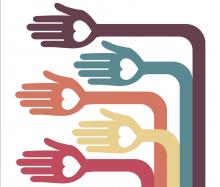
As we approach Holy Week, I’ve been re-reading the Gospel accounts of Jesus’ Last Supper, trial, crucifixion, and resurrection. In John 17, as Jesus prays for his disciples and their successors in the hours before he is arrested, he prays for our unity as his church:
…that all of them may be one, Father, just as you are in me and I am in you… May they be brought to complete unity to let the world know that you sent me and have loved them even as you have loved me. (John 17:21, 23)
Central to our mission as Christ’s followers is to share with the world this good news: that the Father sent the Son because he so loved the world — but the best observable evidence of that Gospel reality, a unified Church, seems a distant, utopian dream. Just within the United States — this small sliver of the global church — we are divided by denomination, by race, by political ideology, and by the competitive human instinct that leads even those congregations who resemble one another doctrinally, ethnically, and politically to jockey over the same individuals in order to fill their sanctuaries (or auditoriums) and offering plates. Perhaps the situation is not quite so stark: I know that many — probably most — believers share the desire for unity. It just seems at times that we have so far to go, and might be drifting in the wrong direction.
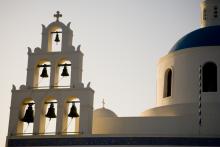
From white villages Easter bells resound.
Rejoice! Give thanks! I raise my voice
Evil disappears from the world.
And that means somewhere God must be.

Oh my, did I need Opening Day this year. Opening Day, of course, is the first day of the baseball season. For baseball fans, it is a time when hope comes alive again, after a long winter of waiting.
On Opening Day, every team starts with a clean slate, all the win/loss records are 0-0 , and, as they say, “hope springs eternal.” There is talk in every baseball town and among all baseball fans of how we really could win this year if only this or that goes right, if our players could live up to their real potential, if we could finally “gel” as a team, and if all the things we can’t control could go well for us and not so well for the other teams. “Have you seen that new rookie?” And “that trade we just made could make all the difference now!” Everybody is a believer on opening day.
The Boston Red Sox need to throw off the long-lasting “curse” of the Bambino, which still lurks around Fenway Park despite their recent successes. The hated New York Yankees still stand in the way of another World Series ring. The Cubs fans in Chicago, with a record that would cause mere mortals to despair, have actually learned to nurse an almost eschatological hope of victory that might require the second coming of Christ to fulfill — but nonetheless, you hear chatter all over the north side of the Windy City about how it could happen “this year.” Just think of what finally going all the way “this year” could mean to my suffering hometown of Detroit, which we could do if Miguel Cabrera stays healthy. And, just so you know, the starting pitching rotations of both the Washington Nationals (the adopted team of everyone who lives in D.C.) and the Tigers are simply the best in baseball. But, I may be a bit biased.
Opening Day always comes, and I believe not accidentally, during the end of the holy season of Lent (marked by waiting in disciplined reflection, sacrifice, and even suffering), and always close to Easter and Passover — when hope comes alive again.
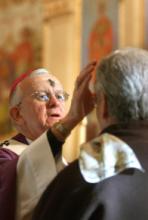
This Wednesday marks the beginning of Lent with Ash Wednesday. For Christians, Lent is a 40-day season of fasting, reflection, and penance culminating in Holy Week and the Easter Sunday commemoration of Jesus’ Resurrection.
The Rev. Arne Panula, director of the Catholic Information Center in Washington, D.C., said his experience is that more people go to church on Ash Wednesday than any other holiday, including Christmas and Easter.
Here are a few basics on the Ash Wednesday tradition.

At the Full Frame Film Festival in Durham last week, I saw Marco Williams’ new documentary, The Undocumented, which tracks migrants as they hike into the United States across the border between Mexico and Arizona, trying to escape the detection of border patrol agents, and trying to survive the deadly heat of the Sonoran desert.
The documentary follows a young man, Marcos Hernandez, as he tries to find his father, Francisco, who was last seen in the desert walking for days in the 120-degree summer heat. Francisco left their home in Mexico with a coyote — man he paid $2,000 to lead him across the border — to make enough money to pay for his son’s expensive dialysis treatments. But he never called; he never returned. The coyote reported that he left Francisco in the desert because he was sick and couldn’t keep up with the other migrants in the group. Marcos fears the worst — that his father died of dehydration, of heat exhaustion. But to confirm the death he has to find the body.
The filmmaker focuses on the morgue in Tucson, Ariz., where the medical examiner investigates human remains, looking for clues that would help identify the dead in order to return whatever is left to family members and friends, to provide some kind of closure, to honor the dead with a burial.
In the film, Marcos won’t believe his dad is dead until he can see his dead body, or whatever is left of his body — a skull, teeth, his rib cage. He will not believe unless he can see.
“Unless I see the mark of the nails in his hands, and put my finger in the mark of the nails and my hand in his side, I will not believe” (John 20:25). That’s what Thomas says to the other disciples about the resurrected Jesus; and what Thomas says about needing to see the body reminds me of the story of Marcos, about the need to see in order to believe.

As Christians around the world gathered for Good Friday and Resurrection Sunday celebrations last weekend, I have reflected a great deal about the connection between the suffering and passion of Christ and the plight of the undocumented in our nation.
This past year, an amazing surge of activity and concern has emerged among believers in general, and evangelicals in particular focused on passing a new immigration policy in our country. This development is quite a surprise and change. In fact, 10 years ago it was almost impossible to find a recognized evangelical leader who was knowledgeable about immigration, let alone one who was willing to speak out on this issue.
At the core of why evangelicals have made such a dramatic change of heart is the reading of Scripture. While it is impossible to ignore that there are 92 references in Scripture where the word, 'ger' is used, speaking about the stranger in our land and our treatment of these individuals, it is not one single verse but the entire revelation of Scripture that points us towards our responsibility to love the most vulnerable people in our society.
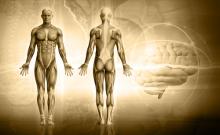
Immediately following the election of Cardinal Jorge Mario Bergoglio as Pope came the predictable speculation. From the United States and other wealthy nations, folks wondered what the new Pope would say about issues related to gender and human sexuality. What about birth control, homosexuality, and women’s leadership in the church? Did the new Pope really support civil unions for gay and lesbian couples in Argentina, as some reported? Others, including many from Latin America, Africa, and parts of Asia responded to Pope Francis’ commitment to a simple lifestyle and his commitment to economic justice. While some fretted about his relationship with the Argentinian military dictatorship during the 1970s and 1980s, most have been impressed with his social witness. In one of his first public acts, Pope Francis entered a youth detention center in Rome and washed the feet of young offenders.
Lots of observers might wonder, “Why is the church expending so much energy on controversial social issues? Shouldn’t the church focus on spiritual matters rather than concerns of the flesh? Why does the church need to meddle in matters that lie beyond its purview?”
The Easter stories offer a direct answer. Whether we agree with the Pope or not, Christians care about human bodies. The resurrection story implies that bodies matter. Jesus’ resurrection is not merely a spiritual thing – the apparition of his ghost, or his ongoing spiritual influence. The Gospels all insist that the resurrection includes Jesus’ body.
In some way or other, I think it’s safe to say that we all have a kind of nostalgia for the innocence and purity of the Garden of Eden before what we call “the fall.” We have a sense that we are not supposed to be outside the gates of the Garden … out here. At the expulsion of the man and the woman in the story from Genesis, the cherubim (angels) are posted at the gate to be sure that those who have been expelled cannot get back in. The cherubim and a twirling, flaming sword keep Adam, Eve — you, me, all of us — on this side of the gate, outside the Garden of Eden.
Well it’s a story, of course, but isn’t it our story? Nostalgic for a world where nothing ever goes wrong. But illness comes, a marriage goes bad, a relationship with someone you love falls apart just when you think it’s to lead to something more permanent, you lose a job, you suffer depression, you suffer from an illness, you’re left alone in grief over the loss of a loved one. Or you yourself are dying, and there are wars and rumors of wars. We watch the children and wish that we could protect them, but we can’t, even though we are parents and grandchildren, aunts and uncles. Out here, outside the Garden, it’s rough sometimes.

The night was cold and dark as the family approached the border. Ahead of them were miles of desert that would test their will and drain their stamina. What they were doing defied the law. But they were a family, and families will do anything for the sake of their children.
The law they defied was that of Herod. The family: Joseph, Mary and the Christ-child.
As Christians prepare to celebrate Easter, let us remember that the life that ended on the cross began on the road. This Easter, let us remember that Christ the Savior began his life as an immigrant, fleeing the land where he was born to escape Herod’s wrath.
Easter is a holiday of new beginnings. It welcomes a new season. It is a time to start fresh. At the heart of Easter is a magnificent reservoir of grace. Of this holiday, Katherine Lee Bates reflected, “It is the hour to rend thy chains, the blossom time of souls.” Easter is a time to set people free, fix things that are broken, watch souls blossom — all for glory of the risen Christ.
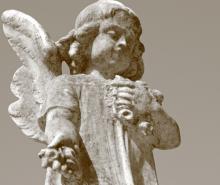
The conversation yelling match around gun control is exhausting — both in terms of the ethical boundaries each side will breach to advance its cause, and the way our rhetoric has turned into an exercise in “crash-testing:” we always hit a wall in talking our good sense to the Dissenters, but are content to back up, add force, and try again. Because “One day, THEY will see the light. One day, THEY will become US”…
… crash!
The more gun violence we experience as a nation correlates to our panic in pursuit of the common good, however we define it. And get too many panicky people in a room – people who are certain they are right – and watch how skillfully they evade progress. I am a pastor in Chicago and I speak on behalf of all who serve in neighborhoods where violence has become the rule and not the exception: I am tired of you hitting the wall.
This course of action and righteous disrespect of Those-With-Their-Heads-You-Know-Where will not make us masters or better neighbors. It has made us dummies. And while we are arguing, our children are losing. In Chicago, and Baltimore, and Detroit, and Newtown, and in Washington. They are losing because we are competing to see who can make the wall topple over the other first. Because we are arguing over rights from the wrong perspective.
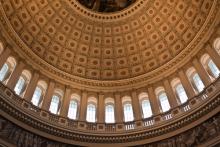
This week a large number of Americans are celebrating Holy Week, leading up to Easter Sunday. Churches will be packed with both the regulars as well as the once- or twice-a-year worshippers for the "Super Bowl of Sundays" to celebrate Christ’s victory over death and sin and his glorious resurrection.
In the midst of an exasperating and polarized political debate around the U.S. budget, our national and political leaders can learn valuable lessons from Holy Week. Whatever your faith background may be, we could all benefit from a greater commitment to the humility, shared sacrifice, and hope that Holy Week embodies. An extra dose of humility, sacrifice, and, ultimately, hope represent the balm that could bridge many of our ideological differences and resolve the current political impasse around the budget that has paralyzed our political system and divided the nation.
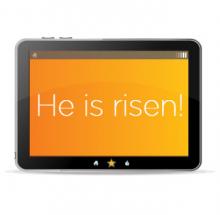
No doubt that Resurrection Sunday (or otherwise known to the masses as Easter) is one of the most significant events and Sundays for the Church. While it wouldn’t be wise to reduce the totality of God’s narrative to one event, the death and resurrection of Christ is undoubtedly, crucial. Our faith and the credibility of the Gospel hinges upon the historicity and veracity of the resurrection of Christ.
The Apostle Paul articulates this truth succinctly and powerfully:
“And if Christ has not been raised, then all our preaching is useless, and your faith is useless.” – 1 Corinthians 15:14
For this reason, Easter is often referred to as the Super Bowl for Christian churches.
As expected, a great amount of time, energy, ideas, and resources are invested into this weekend. And I get it. And I agree with it – in part.

For the sake of the world, we should all be feminists. And given what we know about the role of independent, empowered women in the community of disciples, for the sake world, we might be “Christians.”
Raymond Brown, the late, great scholar of John, writes: “In this Gospel, where light and darkness play such a role, darkness lasts until someone believes in the risen Jesus.”
Therefore no darkness, no heartbreak, no grief, no injustice can long stand where the Risen Christ is proclaimed. Jesus Christ is the light of the world. The light shines in the darknessa and the darkness does not — cannot — will not overcome the light.
This Easter, Teresa MacBain will mark an anniversary that’s uncommon for an ordained minister — her first year as an atheist.
Last March, MacBain, now 45, stood at a podium before hundreds of people in a Maryland hotel ballroom at the national convention of American Atheists and told them that, after a lifetime as a Christian and 15 years as a pulpit pastor, she had lost her faith.
Her coming out was national news, and she expected it would cost her her position as pastor of a United Methodist church, and she expected she might lose some friends and family members. In the last year, she has lost all those things.
But there have been gains, too, including a new career, the embrace of a new community that she had been taught to distrust and a newfound sense of confidence.
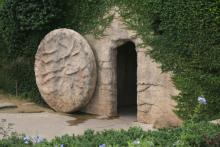
In Christianity’s passage through Holy Week to Easter Day, a moment of truth will arrive.
Every detail is well known, thoroughly studied, and dramatized by Hollywood and homespun pageants — and the familiar story will reach across the divide and touch, or try to touch, every person who is listening and watching.
Many will get it, especially if they live in circumstances where people get falsely accused by the self-righteous; where the weak and vulnerable get mistreated by the powerful; where physical suffering is a daily occurrence; where death seems like the only next option.
That audience could well comprise the bulk of humanity — those who endure poverty, starvation, and violence of epic proportions, those who live in more prosperous lands and yet are the oppressed, the ignored, the expendable.
For that audience, the Gospel message is profoundly good news.

During this Holy Week, Christians around the world turn inward to reflect on the mystery and miracle of the death and resurrection of our Lord, Jesus Christ. Those two surpassing events are more than good enough to occupy the mind and heart of every believer.
But they are not all that Jesus did in these eventful days. As any student of the scriptures will know, Jesus did not go quietly to the cross. Three days before his execution, he stormed the temple and challenged the seat of theocratic power in Jerusalem, condemning the pharisaic elite who "preach, but do not practice" and "tie up heavy burdens, hard to bear, and lay them on the people's shoulders." (Matt. 23:3-4) He accused as hypocrites leaders who make token offerings yet "have neglected the weightier matters of the law: justice and mercy and faithfulness … Inside they are full of greed and self-indulgence." (Matt. 23:23,25)
In his final teaching before the events of Maundy Thursday and Good Friday began, Jesus embraced those who are oppressed and cautioned his disciples that acts of love and mercy are the measure of a heart touched by grace. "For I was hungry and you gave me food, I was thirsty and you gave me drink, I was a stranger and you welcomed me, I was naked and you clothed me, I was sick and you visited me, I was in prison and you came to me … Truly, I say to you, as you did it to one of the least of these my brothers, you did it to me." (Matt. 25:35-40)
In honor of the occasion, Congress will close its doors and lawmakers will head home to be with their constituents for the Easter recess. If inside reports are to be trusted, they will leave Washington "armed with excuses" that explain away the latest fiscal fiasco, and the people will have little to say in reply. I pray it isn't so.